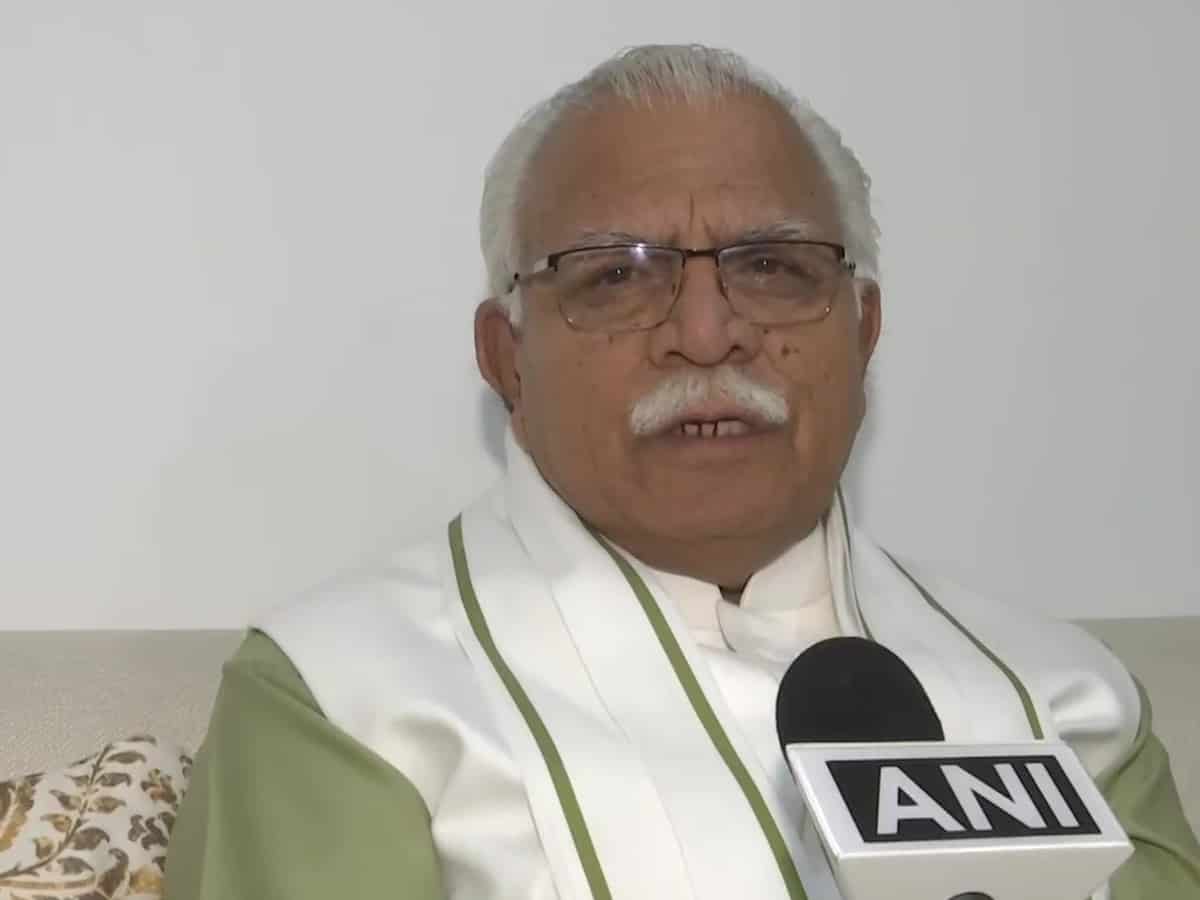
Chandigarh: Haryana Chief Minister Manohar Lal Khattar on Tuesday said his government is not afraid of criticism and will keep introducing governance reforms.
His comments came in the wake of opposition parties targeting the state government’s flagship Parivar Pehchan Patra (family ID) scheme and several sarpanches opposing the e-tendering system in development works in rural areas.
“We are not afraid of criticism, will keep introducing governance reforms. We took challenge of bringing changes in system. We will not be deterred by the opposition to our good works,” he said in his two-hour reply to the debate on the Budget in the state assembly.
The CM, who also holds the finance portfolio, had presented the state Budget for 2023-24 in the assembly last month.
The Budget was unanimously passed in the House after the chief minister’s reply on its estimates.
Khattar had on February 23 presented the Rs 1.83 lakh crore Budget, announcing many new initiatives while laying emphasis on various sectors especially social and agriculture and also proposed no fresh tax.
During his reply, Khattar announced that now MLAs can spend an amount of Rs 2 crore being given under the ‘Vidhayak Adarsh Gram Yojana’ for the development works in the urban areas as well.
“Earlier the MLA used to spend the said grant in rural areas only but now this amount can be used for the development works in the urban areas as well,” he said.
He also announced to rename this scheme as ‘Adarsh Nagar Evam Gram Yojana’. The director, panchayat will be the nodal officer for this, he said.
Khattar also announced that the women’s college to be constructed at Balsamand, Hisar will be named after former chief minister late Bhajan Lal.
He also said that apart from already announced 4,000 playway schools in the year 2022-23, an additional 4,000 such schools would be further opened in the state.
He took on Leader of the Opposition Bhupinder Singh Hooda, who was not present in the House due to illness, saying the former CM has been giving contradictory figures about state debt.
The CM also touched upon steps taken for water conservation. Water table is going down every year, he said, while adding the government has started several schemes to conserve water.
During Khattar’s reply, some Congress members kept interrupting him on various issues.
He sought to clarify the definition of debt, and said that in the public debt three different heads are included. The Opposition should not confuse one with the other while calculating the final debt figures, he said.
The State Public Enterprises loan figure in 2014-15 was Rs 69,922 crore, while in the year 2021-22, the figure was Rs 47,211 crore. The debt graph of the state at present has declined, he claimed.
Khattar said Haryana is in the third position in the country in terms of investments after Karnataka and Maharashtra.
The chief minister said that for 2023-24, Rs 7,314 crore was allocated for agriculture and allied sectors, which is 3.9 per cent of the total Budget.
He stated that in 2014-15, the total allocated budget for this sector was Rs 2,156 crore which was only 3.4 per cent.
Responding to an issue raised by the Opposition regarding why Haryana gets less financial help from the Centre as compared to neighbouring states, the chief minister said the Centre follows the formula that “the more progressive a state is, lesser the financial grant will be”.
He said the government is focused on making panchayats and civic bodies financially independent. They have been directed to prepare their budgetary allocation and ensure the same is spent on carrying out various development works, he said.
Khattar also said that the local audit system would be meticulously implemented. Whatever public money will be spent on development works, local audit would be conducted for the same, said the chief minister.
He said that before finalizing the Budget, suggestions from all the stakeholders were taken, and out of around 700 suggestions, those which were feasible have been incorporated.
